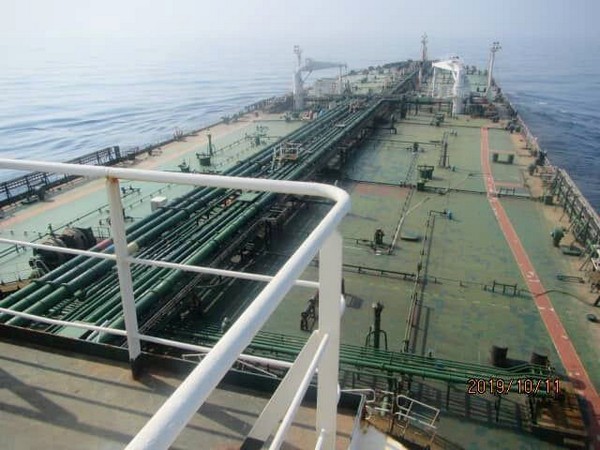Nearly 30km oil slick after Houthis attack UK-owned vessel
Feb 25, 2024
Washington [US], February 25: Iran-backed Houthi rebels have attacked a UK-owned bulk carrier in the Red Sea causing an oil slick, the US military said in the early hours of Saturday.
The Rubymar, a Belize-flagged vessel, was attacked on February 18, the US Central Command (CENTCOM) said in a statement, adding that the vessel "is anchored but slowly taking on water."The Houthi rebels said on Monday that they had attacked a British ship in the Gulf of Aden, claiming that it was so severely damaged that it could sink. CENTCOM said that the vessel suffered "significant damage," and that the attack had caused an 18-mile (29-kilometre) oil spill.
"The M/V Rubymar was transporting over 41,000 tons of fertilizer when it was attacked, which could spill into the Red Sea and worsen this environmental disaster," the command centre said, accusing Houthi rebels of showing "disregard for the regional impact of their indiscriminate attacks, threatening the fishing industry, coastal communities, and imports of food supplies."
In a separate statement, CENTCOM said that its forces on Friday destroyed seven mobile anti-ship cruise missiles in Houthi-controlled areas of Yemen that "were prepared to launch towards the Red Sea." The regional command said it determined the missiles "presented an imminent threat to merchant vessels and to the US Navy ships in the region." The Islamist Houthi militia has vowed to attack ships in the Red Sea linked to Israel. However, many of the ships that have come under fire have no connection to the country.
The Houthis say they want to force an end to the Israeli attacks in the Gaza Strip.
Because of the continuing Houthi attacks, major shipping companies are increasingly avoiding the shortest sea route between Asia and Europe and sailing around South Africa's Cape of Good Hope.
Source: Qatar Tribune








